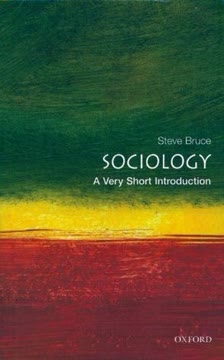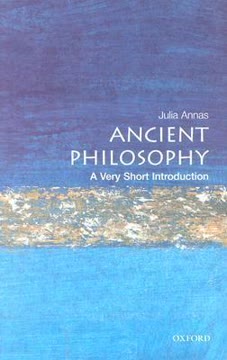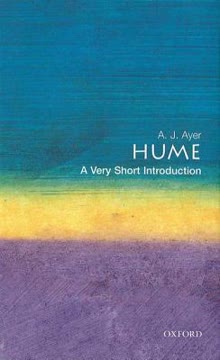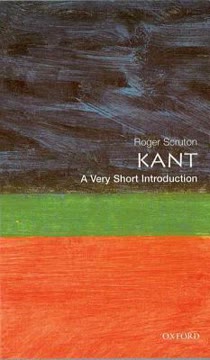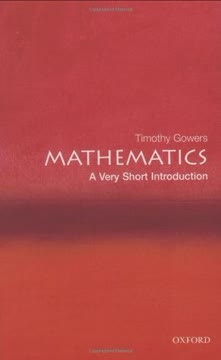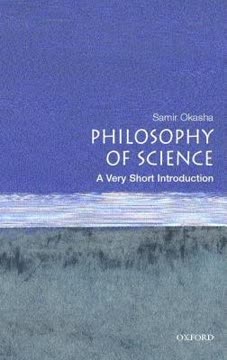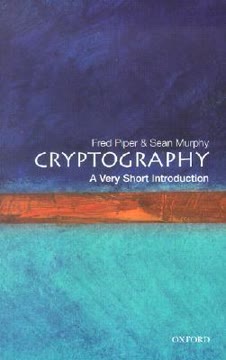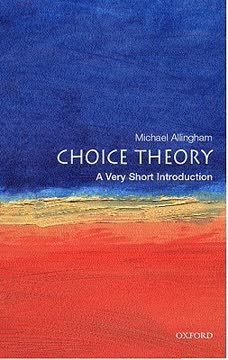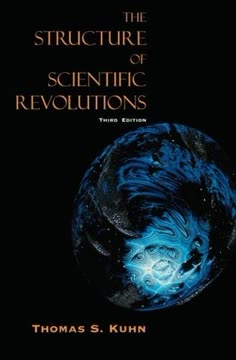النقاط الرئيسية
1. العلم يهدف إلى فهم وشرح العالم
"ما هو العلم؟ قد يبدو أن هذا السؤال سهل الإجابة: الجميع يعرف أن مواضيع مثل الفيزياء والكيمياء وعلم الأحياء تشكل العلم، بينما مواضيع مثل الفن والموسيقى واللاهوت لا تفعل ذلك."
الاكتشاف العلمي والاستكشاف. العلم هو نهج منهجي لفهم العالم الطبيعي من خلال الملاحظة والتجريب وتطوير النظريات. وقد نشأ من عملية تاريخية طويلة، مع لحظات رئيسية مثل الثورة العلمية التي غيرت المعرفة البشرية عن الكون.
الخصائص الرئيسية للاستقصاء العلمي:
- الملاحظة والقياس المنهجي
- صياغة الفرضيات
- الاختبار التجريبي
- تطوير النظريات
- التحسين المستمر للفهم
التطور التاريخي. تطور المنهج العلمي من خلال لحظات حاسمة مثل تحدي كوبرنيكوس للنماذج الجيومركزية، وشرح داروين لظاهرة التطور، واكتشاف واتسون وكريك لبنية الحمض النووي. هذه الاكتشافات أظهرت قوة العلم في كشف الظواهر الطبيعية المعقدة.
2. الاستنتاج العلمي يعتمد على الاستدلال والاستقراء
"غالبًا ما يخبرنا العلماء بأشياء عن العالم لم نكن لنصدقها لولا ذلك."
أنواع الاستدلال العلمي. ينطوي الاستنتاج العلمي على طريقتين رئيسيتين من التفكير: الاستدلال الاستنتاجي والاستدلال الاستقرائي. يوفر الاستدلال الاستنتاجي اليقين، بينما يسمح الاستدلال الاستقرائي للعلماء بعمل توقعات احتمالية حول الظواهر غير المرصودة.
الاستدلال الاستنتاجي مقابل الاستدلال الاستقرائي:
- الاستنتاج: يضمن النتيجة إذا كانت المقدمات صحيحة
- الاستقراء: يستخلص استنتاجات محتملة من ملاحظات محدودة
- كلاهما ضروري لتوليد المعرفة العلمية
التحديات في التفكير العلمي. أبرز الفلاسفة مثل ديفيد هيوم التحدي الأساسي للاستقراء - لا يمكننا إثبات بشكل قاطع أن الأحداث المستقبلية ستشبه التجارب الماضية، ومع ذلك يعتمد التقدم العلمي على هذا الافتراض.
3. التفسيرات العلمية تكشف عن الآليات السببية الأساسية
"أحد الأهداف المهمة للعلم هو محاولة شرح ما يحدث في العالم من حولنا."
شرح الظواهر الطبيعية. تهدف التفسيرات العلمية إلى كشف الآليات السببية وراء الأحداث المرصودة، متجاوزة الوصف البسيط إلى فهم العمليات الأساسية.
أساليب التفسير العلمي:
- نموذج القانون الشامل
- التفسيرات السببية
- التعريفات النظرية
- الاختزال إلى المبادئ الأساسية
تعقيد التفسير. لا يمكن تفسير جميع الظواهر بشكل كامل من خلال الفهم العلمي الحالي. بعض جوانب الواقع، مثل الوعي، تظل صعبة التفسير من خلال الأساليب العلمية البحتة.
4. الواقعية العلمية تناقش طبيعة المعرفة العلمية
"يعتقد الواقعيون أن العلم يهدف إلى تقديم وصف حقيقي للعالم، وأنه غالبًا ما ينجح في ذلك."
النقاش الفلسفي. تواجه الواقعية العلمية أسئلة أساسية حول طبيعة المعرفة العلمية، خاصة فيما يتعلق بالكيانات غير المرصودة مثل الذرات والإلكترونات.
وجهات نظر رئيسية:
- الواقعية: تصف النظريات العلمية الظواهر الواقعية
- المناهضة للواقعية: النظريات أدوات تنبؤية مفيدة
- النجاح التجريبي كدليل على الحقيقة النظرية
التحقيق الفلسفي المستمر. يتضمن النقاش فحص العلاقة بين النظريات العلمية والواقع المرصود، متحديًا المفاهيم المبسطة للمعرفة العلمية.
5. تتطور النماذج العلمية من خلال الثورات
"يتغير العلم بسرعة. اختر أي تخصص علمي تفضله، ويمكنك أن تكون متأكدًا من أن النظريات السائدة في هذا التخصص ستكون مختلفة عن تلك التي كانت قبل خمسين عامًا."
تحولات النماذج. جادل توماس كون بأن التقدم العلمي يحدث من خلال تغييرات ثورية في الأطر الأساسية، وليس من خلال تراكم خطي للمعرفة.
خصائص الثورات العلمية:
- تحدي الأطر النظرية القائمة
- تقديم نماذج مفاهيمية جديدة تمامًا
- تحويل الفهم العلمي
- الأبعاد الاجتماعية والمؤسسية للتغيير
التحول المستمر. المعرفة العلمية ديناميكية، مع فترات من العلم الطبيعي تتخللها تحولات ثورية في النماذج تعيد هيكلة الفهم العلمي بشكل جذري.
6. توجد مشاكل فلسفية في تخصصات علمية محددة
"هناك أسئلة فلسفية مثيرة للاهتمام تتعلق بعلوم معينة."
التحقيقات الفلسفية بين التخصصات. يكشف التحليل الفلسفي عن قضايا مفاهيمية معقدة ضمن مجالات علمية محددة مثل الفيزياء وعلم الأحياء وعلم النفس.
أمثلة على المشاكل الفلسفية:
- طبيعة الزمان والمكان في الفيزياء
- تعريف الأنواع البيولوجية
- فهم التجزئة العقلية
جسر الفلسفة والعلم. يساعد التحقيق الفلسفي في توضيح الأسس المفاهيمية، وتحدي الافتراضات، واستكشاف المعاني الأعمق ضمن التخصصات العلمية.
7. يواجه العلم انتقادات وتحديات مستمرة
"يعتبر الكثيرون أن العلم شيء جيد، لأسباب واضحة."
وجهات نظر نقدية حول العلم. يواجه المشروع العلمي تحديات من وجهات نظر فلسفية واجتماعية وأخلاقية متنوعة.
مواضيع النقد الرئيسية:
- العلمانية وحدود المعرفة العلمية
- التوترات بين العلم والدين
- حيادية القيم في البحث العلمي
- الآثار الأخلاقية للاكتشافات العلمية
الحوار المستمر. تشجع هذه الانتقادات على الانخراط التأملي مع المنهجية العلمية، مما يعزز الفهم الأكثر تعقيدًا لدور العلم في المجتمع.
آخر تحديث::
FAQ
What's "Philosophy of Science: A Very Short Introduction" about?
- Overview of Philosophy of Science: The book by Samir Okasha provides a concise introduction to the philosophy of science, exploring fundamental questions about the nature and methods of scientific inquiry.
- Key Themes: It covers topics such as scientific reasoning, explanation, realism vs. anti-realism, and the nature of scientific revolutions.
- Historical Context: The book also delves into the historical development of scientific ideas, highlighting key figures and breakthroughs in the history of science.
- Philosophical Analysis: Okasha examines philosophical problems specific to various sciences, including physics, biology, and psychology.
Why should I read "Philosophy of Science: A Very Short Introduction"?
- Understanding Science: It offers insights into how science works, its aims, and its limitations, which is valuable for anyone interested in the scientific process.
- Philosophical Perspective: The book provides a philosophical lens through which to view scientific practices, enhancing critical thinking about scientific claims.
- Broad Audience: Written in an accessible style, it is suitable for both beginners and those with some background in philosophy or science.
- Relevance: Understanding the philosophy of science is crucial in a world increasingly driven by scientific and technological advancements.
What are the key takeaways of "Philosophy of Science: A Very Short Introduction"?
- Nature of Science: Science is not just a collection of facts but a systematic method of inquiry aimed at understanding the world.
- Scientific Inference: The book discusses the role of deduction and induction in scientific reasoning and the challenges associated with them.
- Realism vs. Anti-Realism: It explores the debate over whether scientific theories describe reality or are merely tools for prediction.
- Scientific Change: Kuhn's theory of scientific revolutions is highlighted, showing how scientific paradigms shift over time.
What is scientific realism according to Samir Okasha?
- Definition: Scientific realism is the view that science aims to provide a true description of the world, including unobservable entities like electrons and quarks.
- Empirical Success: Realists argue that the empirical success of scientific theories is best explained by their truth or approximate truth.
- Criticism: Anti-realists counter that theories are merely instruments for predicting observable phenomena, not necessarily true descriptions of reality.
- Historical Context: The book discusses historical examples where successful theories were later found to be false, challenging the realist position.
How does Samir Okasha explain scientific inference?
- Deduction and Induction: Okasha distinguishes between deductive reasoning, where conclusions follow necessarily from premises, and inductive reasoning, which involves generalizing from specific instances.
- Hume's Problem: The book addresses Hume's problem of induction, questioning the justification for assuming that the future will resemble the past.
- Inference to the Best Explanation: Okasha discusses this form of reasoning, where scientists choose the hypothesis that best explains the available data.
- Bayesian Approach: The book also explores Bayesian probability as a framework for updating beliefs based on new evidence.
What is the covering law model of explanation?
- Hempel's Model: The covering law model, proposed by Carl Hempel, suggests that scientific explanations involve subsuming phenomena under general laws.
- Structure: An explanation consists of premises (laws and initial conditions) that logically entail the phenomenon to be explained.
- Criticisms: The model faces challenges, such as the problem of irrelevance and the asymmetry of explanation, where it fails to capture causal relationships.
- Alternative Views: Okasha discusses causal accounts of explanation, which emphasize the role of causality in understanding phenomena.
What is Kuhn's theory of scientific revolutions?
- Paradigm Shifts: Kuhn argued that science progresses through a series of paradigm shifts, where an existing framework is replaced by a new one.
- Normal vs. Revolutionary Science: During normal science, research is conducted within the confines of a paradigm, while revolutionary science involves paradigm shifts.
- Incommensurability: Competing paradigms are often incommensurable, meaning they cannot be directly compared using a common standard.
- Impact: Kuhn's ideas challenged the traditional view of science as a linear, cumulative process and emphasized the social aspects of scientific change.
How does Samir Okasha address the realism vs. anti-realism debate?
- Realism: Realists believe that scientific theories aim to describe the world accurately, including unobservable entities.
- Anti-Realism: Anti-realists argue that theories are tools for organizing observations and making predictions, not necessarily true descriptions.
- No Miracles Argument: Realists use this argument to claim that the success of science would be miraculous if theories were not at least approximately true.
- Underdetermination: Anti-realists highlight that multiple theories can explain the same data, challenging the notion of a single true theory.
What are the philosophical problems in physics discussed by Samir Okasha?
- Absolute vs. Relational Space: The book explores the debate between Newton's absolute space and Leibniz's relational space.
- Newton's Bucket Experiment: Newton's thought experiment is used to argue for the existence of absolute space based on observable effects.
- Leibniz's Critique: Leibniz challenges the notion of absolute space, arguing that it leads to indiscernible but distinct universes, violating his principle of identity.
- Modern Implications: The discussion touches on how these historical debates continue to influence contemporary physics.
How does Samir Okasha approach the concept of biological species?
- Species Problem: The book discusses the lack of consensus among biologists on what constitutes a species.
- Biological Species Concept: One approach defines species based on reproductive isolation, but this has limitations, such as with asexual organisms and hybrid zones.
- Phylogenetic Systematics: This approach classifies species based on evolutionary relationships, emphasizing monophyletic groups.
- Species as Individuals: Okasha explores the idea that species are not natural kinds but complex individuals with a unique evolutionary history.
What is the modularity of mind hypothesis?
- Definition: The hypothesis suggests that the mind consists of specialized modules, each designed for specific cognitive tasks.
- Chomsky's Language Module: Chomsky proposed a language acquisition device as an example of a mental module.
- Fodor's View: Fodor argues that some cognitive processes are modular, characterized by domain-specificity, mandatory operation, and informational encapsulation.
- Debate: The book discusses the ongoing debate over the extent of modularity in the human mind and its implications for cognitive psychology.
What are the criticisms of science discussed in the book?
- Scientism: The book addresses the criticism that science is overvalued and that scientific methods are not applicable to all areas of inquiry.
- Science and Religion: It explores the tension between scientific explanations and religious beliefs, particularly in the context of evolution and intelligent design.
- Value-Ladenness: Okasha examines the argument that science is not value-free, with examples from evolutionary psychology and psychiatry highlighting potential biases.
مراجعات
كتاب "فلسفة العلوم: مقدمة قصيرة جدًا" يُعتبر عمومًا مقدمة سهلة وموجزة لمفاهيم رئيسية في هذا المجال. يقدّر القراء شروحه الواضحة للمواضيع المعقدة، على الرغم من أن البعض يجدونه بسيطًا جدًا. يتناول الكتاب أسس التفكير العلمي، والواقعية مقابل اللاأدرية، والثورات العلمية. يوصي به الكثيرون كنقطة انطلاق لمن هم جدد في فلسفة العلوم، مشيدين بموضوعيته ومحتواه الذي يثير التفكير. يلاحظ بعض القراء أنه أثار اهتمامهم لاستكشاف الموضوع بشكل أعمق.
Very Short Introductions Series Series

